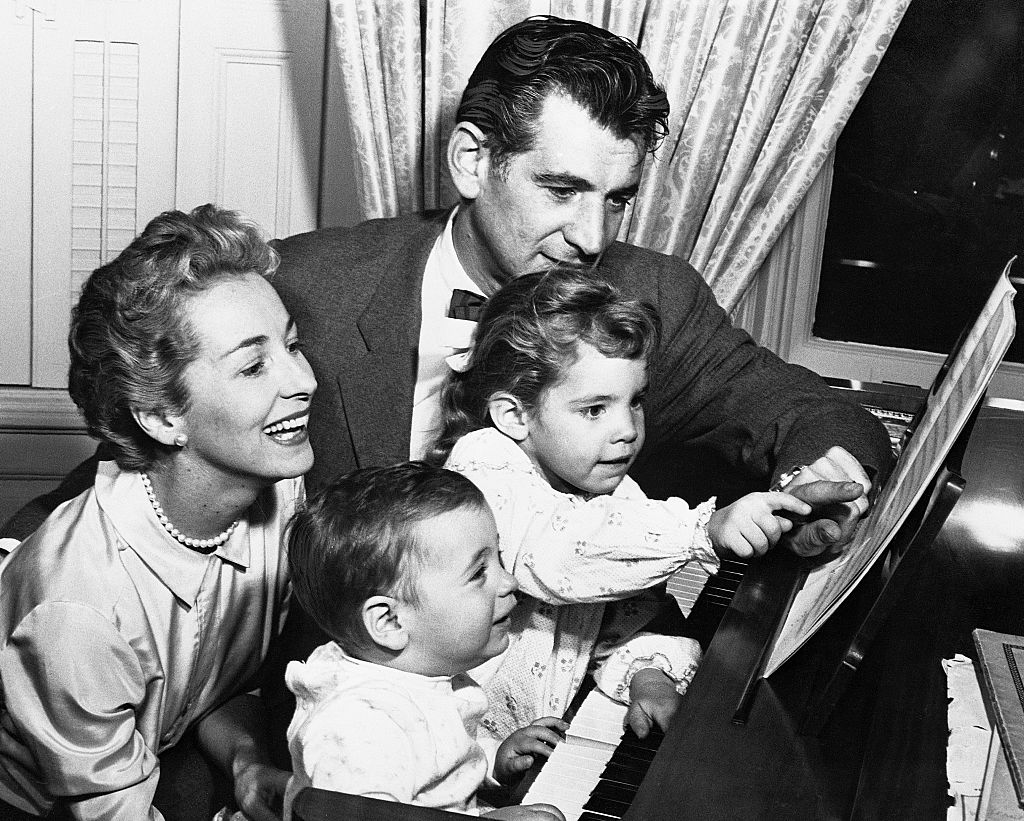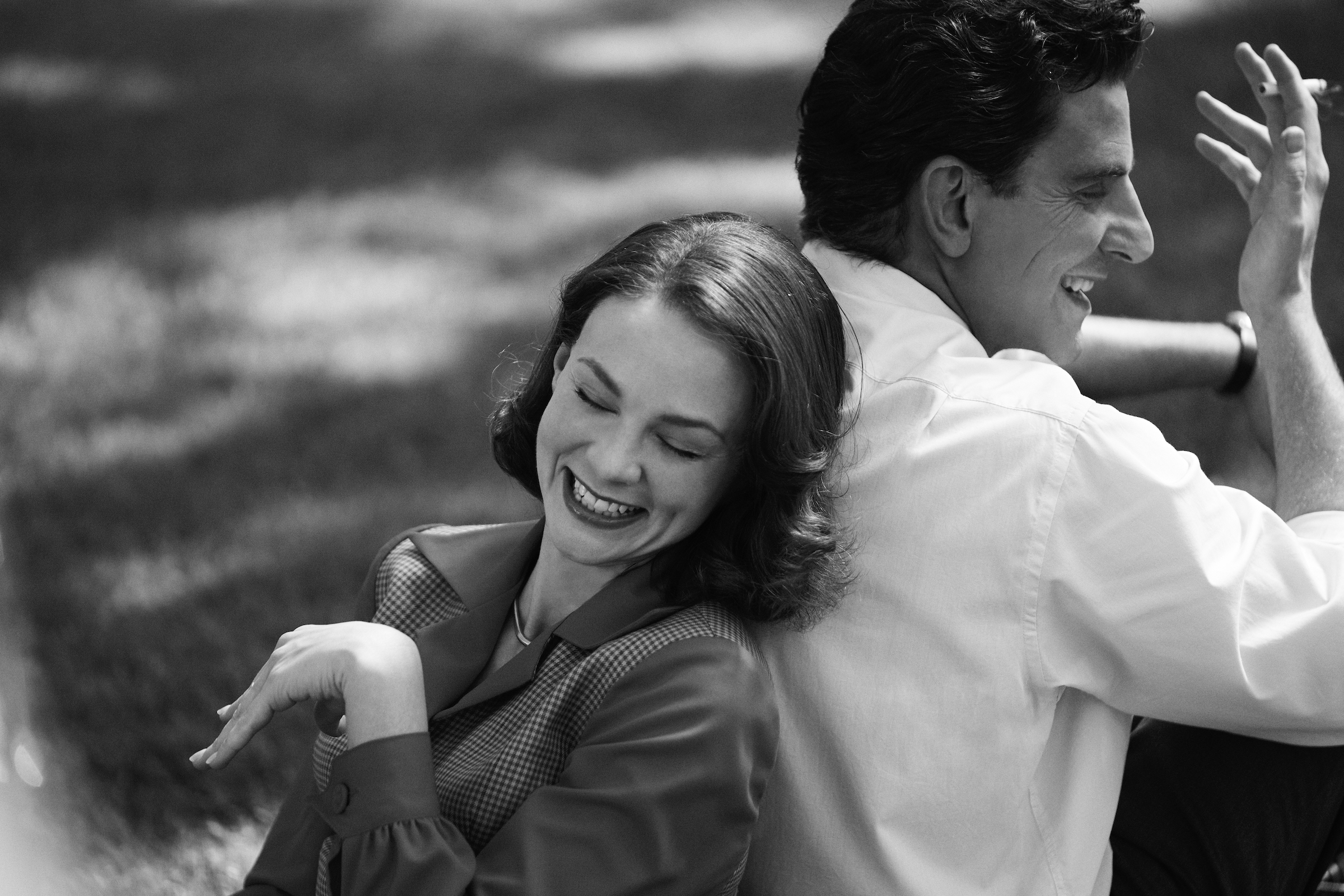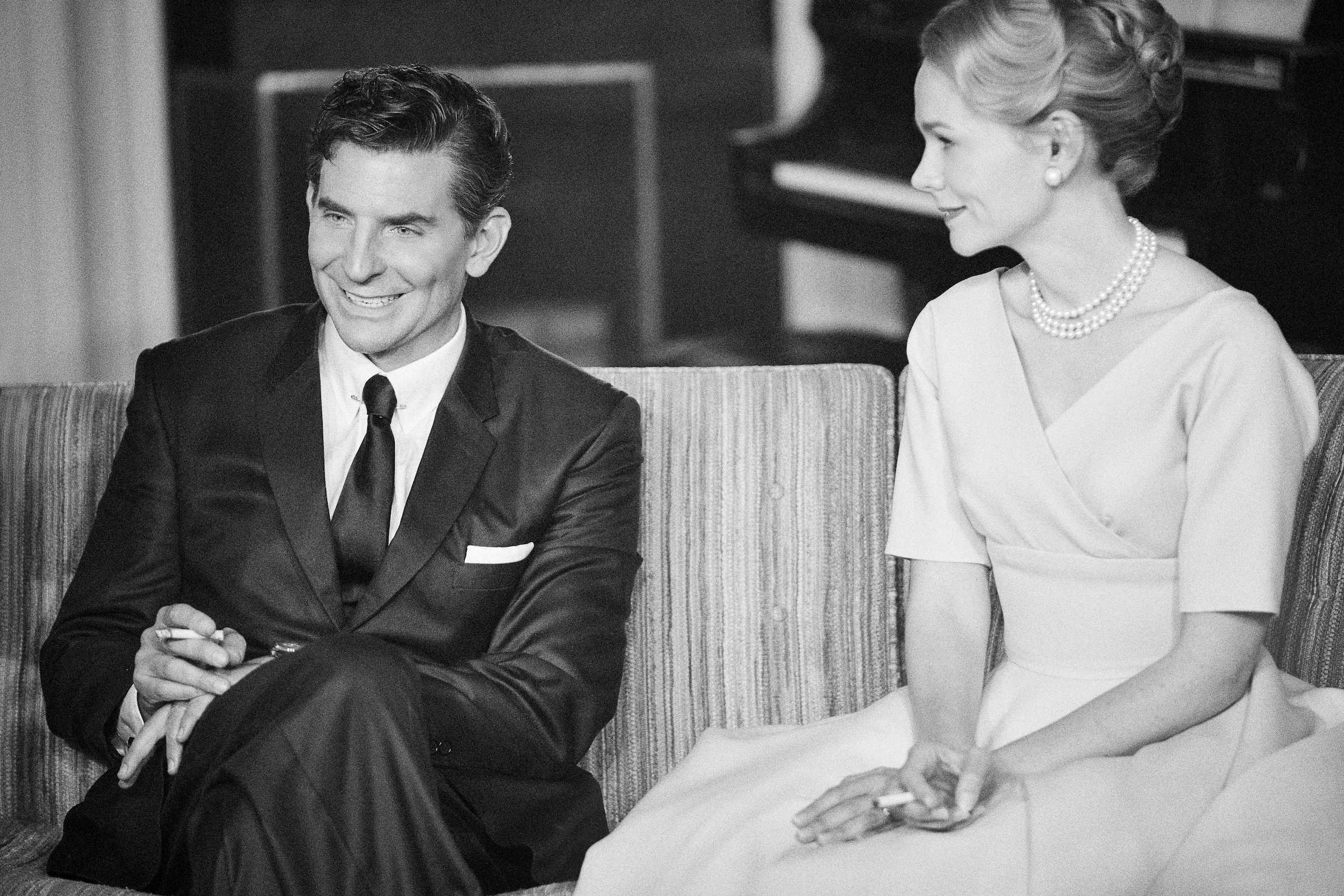Maestro, starring Bradley Cooper as West Side Story composer Leonard Bernstein, is all about the great loves of his life: music and his wife. It's also about how he balanced those things with his love for men.
The movie, which Cooper also directed and co-wrote with Josh Singer, is accurate in reflecting that prior to and throughout the course of Bernstein's 26-year marriage to the actor Felicia Montealegre, he had affairs with men. Montealegre, played by Carey Mulligan, knew the truth about his sexuality and partners outside of the marriage, but chose to marry him, and stayed with him until her death in 1978, raising three children together.
In fact, she wrote a letter to him early on in their marriage, assuring him that she knew he was gay but that she would grin and bear it. (They met in 1946 and were briefly engaged that year before the engagement was broken off, but they ended up marrying in 1951. The movie alludes to this period of uncertainty during a fight between the couple set against the backdrop of the Macy’s Thanksgiving Day parade.) In the undated letter, believed to have been written in late 1951 or 1952, Montealegre called their marriage a "bloody mess."

Published in the 2014 anthology The Leonard Bernstein Letters, Montealegre’s missive then takes back the assertion that their marriage is a mess, and explains why. She is clear in her understanding of his attraction to men and even concedes that they don't have to be married forever if it's not working:
"You are a homosexual and may never change," she writes. "You don’t admit to the possibility of a double life, but if your peace of mind, your health, your whole nervous system depend on a certain sexual pattern what can you do?"
She doesn't ask him to change and reiterates her love for him, giving him permission to see men and not tell her about them: "I am willing to accept you as you are, without being a martyr...let’s try and see what happens if you are free to do as you like, but without guilt and confession."

She adds that she does not regret marrying him: "Let’s relax in the knowledge that neither of us is perfect and forget about being HUSBAND AND WIFE in such strained capital letters, it’s not that awful!"
Staying with Bernstein came with great personal consequences for Montealegre. She had a career as a stage and television star before essentially giving it up to raise their children. She also converted to Judaism for Bernstein. “She sacrificed her career to become the anchor of this family,” Nigel Simeone, who edited The Leonard Bernstein Letters, told TIME. The movie references this in a televised interview in which Montealegre is asked about her career and says that between taking care of the household and her (at the time) two young kids and keeping track of Bernstein’s pursuits, there wasn’t a lot of extra time left over.
Aside from their love for one another, marrying Montealegre also had implications for Bernstein’s career and his optics as a public figure. American society in the 1940s and 1950s was still deeply homophobic, and one of Bernstein's mentors, the Russian conductor Serge Koussevitzky, urged Bernstein to marry Montealegre to dispel rumors about his sexuality, according to Paul R. Laird's 2018 biography Leonard Bernstein. In the movie, Koussevitzky (played by Yasen Peyankov) tells Bernstein he could be America’s first great composer if he changed his Jewish surname, and, he implies, stopped doing the things in his personal life that could come to haunt him if exposed to the public.
“There's no question that Felicia served as his beard,” Laird tells TIME. However, he maintains that while the marriage may have been necessary for his career, there was real love between the two—and that’s crystal clear in the movie, as well.
Though Montealegre accepted the arrangement, that didn’t mean it was easy for her to live with. Shortly after they got married in September 1951, they visited friends Philip and Barbara Marcuse in Detroit, and got into a fight so bad that Bernstein wrote the couple an apology letter. In the Oct. 9, 1951 message, Bernstein referred to "tensions" between himself and Montealegre and described their union as "a marriage contracted in insecurity." The couple’s close friends knew about the conductor’s two lives. “It was an open secret,” as Simeone puts it.

In the movie, Mulligan as Montealegre speaks to these difficulties over a meal with Bernstein’s sister Shirley, played by Sarah Silverman. She tells her that despite knowing what she knew, she may have overlooked the importance of her own needs in the arrangement.
Laird notes that just as more people started being open about their sexuality after the Stonewall Riots in 1969, Bernstein also wanted to live more openly as a gay man. Cooper captures this shift in a scene in the film in which Bernstein is speaking to a crowd about the importance, for artists such as himself, to live as their true selves especially as death approaches. In the mid-1970s, he vacationed and lived with the musician Tom Cothran, during a brief separation from Montealegre in 1976-1977. By then, Felicia had cancer, and she died in 1978 at the age of 56. The movie depicts some tensions between the couple when Montealegre walks in on Bernstein kissing Tom (Gideon Glick) at a party and later invites him to spend time with the family at their country home.
“It's very sad the way it ended, with her getting terminally ill at exactly the same moment as he was off having adventures with various shiny young men,” says Simeone. In the film, Cooper is depicted as dutifully and lovingly caring for her until the end, accurately depicting the love Bernstein felt for Montealegre throughout their marriage.
The Bernstein scholars that TIME talked to agree that the conductor’s feelings for Felicia were genuine. He just loved men too.
“Bernstein absolutely loved her—there was no question about that,” says Laird. “It was as sincere a marriage as you're going to get between a male homosexual and a woman at a time when a lot of male homosexuals married women.”
Bernstein’s eldest daughter Jamie has talked about her parents’ strong friendship.
"They were really great friends and probably that counts for the most in the long run, that they could still make each other laugh,” as she put it in a 1997 PBS interview. “They could do things together that they were interested in together, read the same books and go to the same theater and be interested in [what] one another has to say about those things, you know, I think that’s probably what keeps a marriage together more than, I don’t know, more than passion.”
More Must-Reads from TIME
- Donald Trump Is TIME's 2024 Person of the Year
- Why We Chose Trump as Person of the Year
- Is Intermittent Fasting Good or Bad for You?
- The 100 Must-Read Books of 2024
- The 20 Best Christmas TV Episodes
- Column: If Optimism Feels Ridiculous Now, Try Hope
- The Future of Climate Action Is Trade Policy
- Merle Bombardieri Is Helping People Make the Baby Decision
Write to Olivia B. Waxman at olivia.waxman@time.com